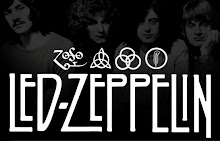Hamlet is fundamentally a play about seeking the truth. The opening scene is a miniature play which introduces the questions that will have to be answered throughout the rest of the work. Barnardo asks, "Who's there?" and is answered by Fransisco with, "Nay, answer me. Stand and unfold yourself" (1.1.1-2). The entire plot is encapsulated in these words, with Hamlet struggling to know who is really standing across from him, and with his own unfolding of himself to the audience. Thus Hamlet will seek to know the truth about whether the ghost is really his father while simultaneously trying to figure out who he himself is as a person.
The ghost presents a figure of antiquity that contrast strongly with the more modern Denmark ruled by Claudius. Barnardo comments, "Looks it not like the King?" (1.1.41), responding to the image of Old Hamlet as the old warrior, wearing complete armor and holding a truncheon. In fact, we are told he looks the same as when he defeated Old Norway. Even the language of the ghost relies on mythology to compare things, "I find thee apt, / And duller shouldst thou be than the fat weed / That rots itself in ease on Lethe wharf" (1.5.31-33). This conflict between the new world which has defeated the old world is made clear by Hamlet, who comments, "That thou, dead corpse, again in complete steel" (1.4.33). Later this contrast will come across even more clearly, in the choice of armor and weaponry. Whereas Old Hamlet appears wearing full armor, the new weapons will be the rapier and the fencing armor, showing how combat is made in sport rather than in war.
Claudius represents the voice of this new society; he is the perfect new politician and stands in contrast to Old Hamlet. This is evidenced strongly by their choice of words: Old Hamlet is of the old Senecan tradition and uses repetition, Claudius uses prose. Claudius further prefers to define himself with the words, "though", "ourselves", and "therefore", as opposed to ghost who uses "I". In true political vein, Claudius' words flow smoothly but the his meaning runs counter to the words. For instance, only by listening closely does the audience realize that he is speaking about incest but hiding it with the language he chooses. We have to listen closely to realize there is something wrong with what he is saying, such as when he contradicts himself: "With mirth in funeral and with dirge in marriage" (1.2.12).
One of the most interesting parallels is the non-play concerning Fortinbras, a man whose story is told only be others until the very end. He is almost a perfect parallel to Hamlet: his father has been murdered, his uncle has taken the reigns of power, and he desires revenge. However, in contradiction to Hamlet, he is also a man who is able to act. We learn in the first act that he has raised an army to attack Denmark, and by the final act he actually appears with his army. Hamlet's growth as a character can in many ways be seen as a progression to what Fortinbras is able to do, namely take action. Claudius will underestimate Fortinbras' army, much the way he underestimates Hamlet's madness, thereby causing his own destruction.
·
Saturday, December 13, 2008
Subscribe to:
Post Comments (Atom)

No comments:
Post a Comment